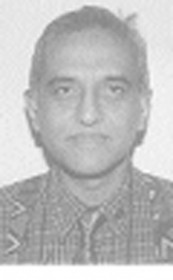Business Page
Introduction
The stereotypical auditor as a fat, prematurely aging, bald, boring and unenterprising man probably says as much about the audit profession as it does about its practitioners. For many forced to use their services, they are just a necessary cost imposed by the law, spending several weeks at great inconvenience to the management and staff, to write a single page report for which they charge a bomb. They are not even worth a good joke, and the most famous but yet barely quotable one is how many auditors it takes to change a light bulb, with the answer being the question: How many did it take last year? It is also true that on most occasions when we consider the auditor, it is to ask the question, but where were the auditors? Where were they in the Enron saga or the spate of frauds that rocked America in the early part of this decade? Where are the auditors when a government squanders billions in corruption, nepotism and mismanagement? It is not entirely unfair to say that the profession is often perceived as concerned more with self-protection and self-preservation and limiting its liability for negligence than in adding value to its clients. This column is really not about the audit profession but only incidental to it, with a view to showing that the profession can be interesting for the practitioners (and hopefully their clients as well).

A week is a long time
After more than thirty-five years, I still find the profession interesting, so much so that I look forward to a visit I make annually to Berbice on audit business to meet not only with the clients of Ram & McRae, but with the business community and ordinary, everyday folks as well. To say that this year was the most interesting would be unfair to those staff of Ram & McRae, who were holed up in a small room while the heavily armed bandits created havoc at the Republic Bank Rose Hall branch a couple of years ago. But this year too had its own interest, even without guns or bandits. I learnt for example that in Guyana we still have cocoa tea and coffee tea and Milo tea. I was greeted by a businessman who made an unsolicited offer for my old-model car with the assurance that payment will be all in cash! I also had to fetch my suitcase up three flights of stairs in what described itself as a business hotel, even though there was no writing desk or telephone in the room in which I stayed. When I complained to the proprietor he lamented that the guard did not come to work that afternoon and that “no one wants to work these days.” Like his Georgetown counterparts he could not recognise that people want to work in a job that offers a remunerative salary, self-respect and dignity. That an economy built on plantation-type businesses is a backward concept, even though it is now being embraced by no less than our Russian-trained President.
As I carried my suitcase up those stairs I reflected whether our under-worked and over-exposed Ministry of Tourism has ever thought that these facilities should be rated so that potential guests can inform themselves in advance of the type of premises and services they can expect for the price they are called upon to pay. Many of these facilities that describe themselves as hotels are no more than guest houses, fit for nothing more than a few hours, and hardly the type of place for the businessperson or to take the family.
Guyana Times and Chronicle
At 10.30 am one working day, I could only find the Guyana Times and the Guyana Chronicle and wondered whether the Kaieteur News and Stabroek News, unblessed with state resources could not have vendors on the Corentyne. I learnt instead that the latter two were already sold out, while the Times and Chronicle were slow sellers, even in the strongholds. The vendor even offered to sell me these two at a discount! Seems that even the ordinary person on the street understands the principles of business better than those who manage and control the state-owned or state-friendly papers, which ignore any ideas of journalistic independence, impartiality and balance.
I experienced first hand as well the difference in the cost of living between what we in Georgetown pay and those in the countryside. I had a full, fairly balanced meal and a beverage for half the price of what one would expect to pay in Georgetown. I was so struck by what appeared to have been a mistake by the person who served me that I challenged the price charged. No, it was not a mistake.
In all of this I was an interested observer, noting some of the differences between rural and urban life. The one incident in which I was just more than an observer was when I went into a shop to buy an item and was given a small piece of square cardboard with the price written on it and told to go pay the amount stated to the cashier. I approached the cashier with money in hand and asked for a bill/receipt. It was just as if an alien or a bandit had entered the store! Some other person who I assume was the proprietor was summoned, and I found myself explaining that I needed the bill so I could claim back my expense from the office, which was not quite true.
One of those generic receipt books was then pulled out from somewhere and I left the store convinced that I had just become complicit in a tax-evasion scam.
The Republic
Berbice of course is not unique for its tax-evasion but it certainly has a reputation. Many years ago one senior politician well known for his creative language, described Berbice as a Republic with its own laws, customs and practices. Seems that nothing has changed. A Georgetown-based client of the firm recently told us customers and potential customers in Berbice were refusing to do business with him if he issued any invoices to them since they did not want to be part of the official records. I confirmed this with a Corriverton businessman who lamented the unfairness of a system in which the honest businesses are driven out by the tax-dodging ones.
The Berbice business person of course feels protected and special. With the knowledge that they are the home of the ruling party, they demand and receive anything they want, whether it is a bridge, a university, the removal of a police officer or a disproportionate share of the national budget. The businessman who hoards millions in his home to evade taxes expects the police to protect him and to respond at a minute’s notice to his call in an emergency. There are some homes in Berbice which would make you forget that you are in Guyana, because of their extravagance and opulence which borders on vulgarity. One wonders how the owners of these properties would account, if in fact they do, for such wealth in their Property and Income Tax Returns.
Berbice is very much part of Guyana and deserves to have services like everyone else. And should the rest of the nation begrudge that part of the country because it seems to be favoured by the ruling party and the government? But is it not right for the rest to expect that the Berbice businessman should be willing or if not, be forced to contribute to the coffers of the state? Some years ago I was told that one of the tax offices in this country did not bring in enough revenue to pay salaries for its own staff, and am aware that some senior owner-managers earned no more than the tax-free threshold. That would no doubt have changed by now, but by how much is anyone’s guess.
TRIP them up
That does not mean that I do not understand that a tax office may not collect all the taxes that arise from the businesses in a particular area or region, with GuySuCo being an obvious case in point. But I still do not understand the failure to make the annual reports of the Guyana Revenue Authority more informative and meaningful. We hear of the marvellous flexibility and capability of the multi-million dollar new computer programme TRIPS now used by the GRA. Could it not produce information by tax offices, regions, sectors, types of taxes, etc?
Part of the problem as well is that the GRA is too Georgetown-centric so that the best of its resources are devoted and dedicated to the better-equipped offices in Georgetown with staff in the regions being far less qualified and capable, comparatively, than their Georgetown counterparts. Corriverton is generally regarded as the smuggling capital of Guyana, but only the Georgetown Customs Officers have been the objects of presidentially-directed investigations.
And I continue to wonder why the GRA continues to issue so-called tax accountants and consultants with tax practice certificates to go out there and aid and abet businesses to evade taxes. In fact these certificates amount to licences to cheat and to rob the revenues of the country at the expense of the working poor and the unemployed, who have to pay PAYE and VAT at a rate that the government knows was wrongly calculated. In fact on the question of VAT I have heard of discussions among businessmen that they are better off with VAT, since only they know how much they collect and can therefore decide how much they share with the government. In practice, it makes them look better to the GRA because they use some of the VAT money they improperly withhold to pay their other tax liability. Let me not hesitate to state that such collusion is not restricted to the “tax consultants” but to the qualified accountants as well, who enjoy statutory exclusivity but many of whom seem not to understand that there should be corresponding professional and ethical integrity.

